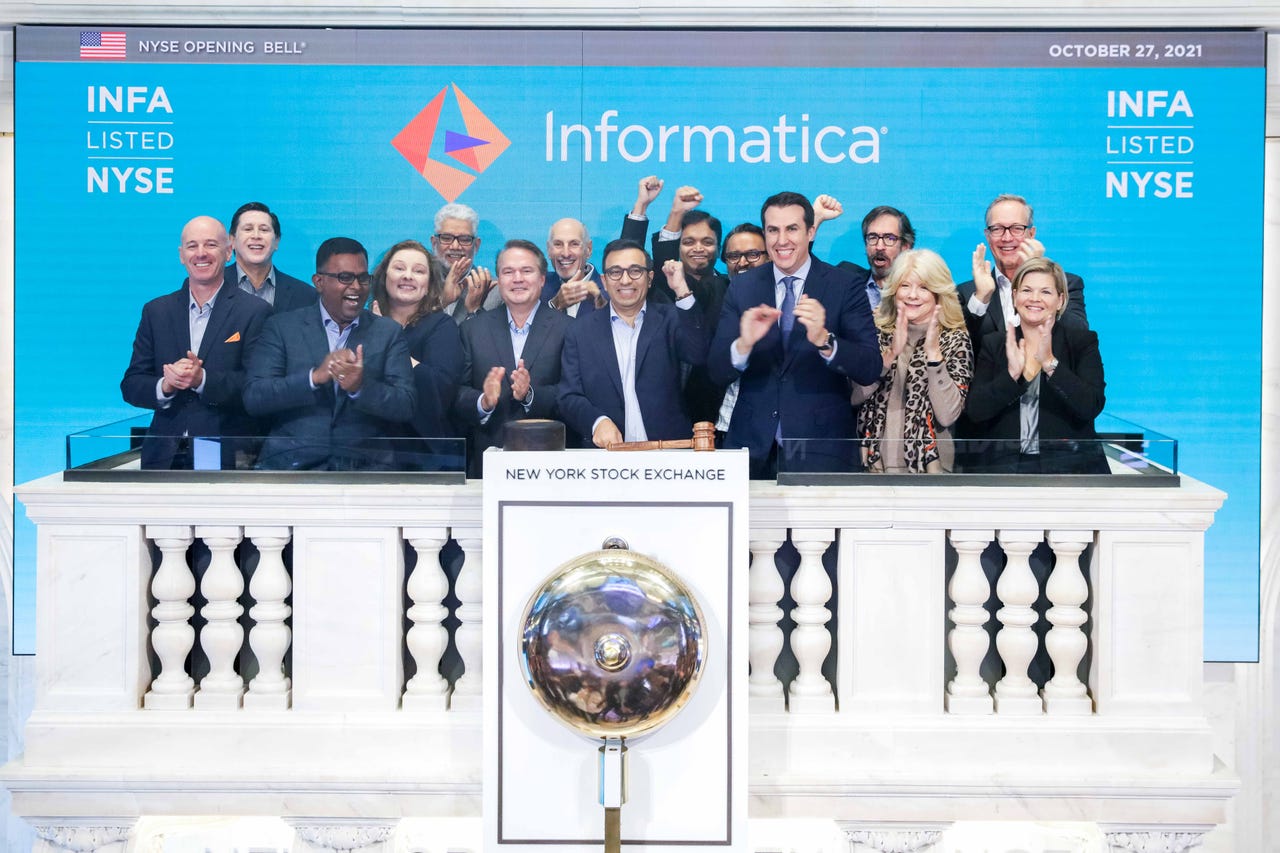































 Informatica
Informatica Shares of Informatica closed at just under$29 on Wednesday, after the data management company's first day back on the public market. Trading on the New York Stock Exchange under the symbol INFA, shares opened at$27.55. The company sold 29 million shares priced at$29, raising$841 million. The expected price range was$29 to$32.
After six years as a private company, Informatica's return to Wall Street marks its transformation to a cloud-first business, CEO Amit Walia said toZDNet.
"We had a couple of things in our mind from a transformation point of view, and we accomplished all of them," he said. "We wanted to build out platform and the new products, and they are all built out... 90% of our revenue is recurring. The remaining 10% is services, which will always be like that. And number three is the partnerships that we have -- we sit in this nexus in the data world of partnering with Snowflake or Microsoft Azure, or GCP, or AWS, or Azure Data bricks. And those partnerships are running at scale."
Earlier this year, the company launched the cloud-native, microservices-based Intelligent Data Management Cloud (IDMC) SaaS offering. The cloud platform is now running 22 trillion transactions a month, doubling every six to 12 months, Walia said, while every new business Informatica brings in is cloud-centric.
Still, much of its installed base has held onto their licenses and is still paying maintenance, as Tony Baer notes forZDNet. Walia called that base a "strategic asset," with strong renewal rates and customers running serious operational workloads.
"Those are the customers that we are engaging with right now to help them migrate to the cloud," he said. After automating as much of the migration process as possible, Informatica is seeing "great early results" converting maintenance revenue to cloud ARR, Walia said.
"Our customers and our sales team are having that conversation about modernization," he said. "I see that as a medium-term opportunity. Obviously, some customers will never migrate. But I'd say a sizable chunk will migrate, and we're helping them de-risk that migration and customers are absolutely appreciating that discussion."
 Tags chauds:
affaires
Gestion des données
Tags chauds:
affaires
Gestion des données